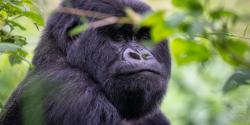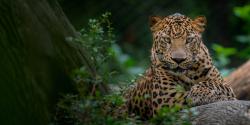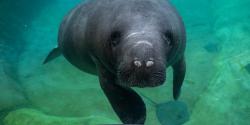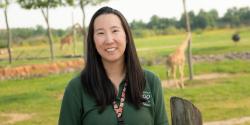Safari Golf Club has retained its designation as a “Certified Audubon Cooperative Sanctuary” through the Audubon Cooperative Sanctuary Program for Golf Courses, an Audubon International program.
Why It Matters
Participation is designed to help course personnel plan, organize, implement, and document a comprehensive environmental management program and receive recognition for their efforts. To reach certification, a course must demonstrate that they are maintaining a high degree of environmental quality in a number of areas including:
- Environmental Planning
- Wildlife & Habitat Management
- Outreach and Education
- Chemical Use Reduction and Safety
- Water Conservation
- Water Quality Management
“Safari Golf Club has shown a strong commitment to its environmental program," said Christine Kane, CEO at Audubon International. "They are to be commended for their efforts to provide a sanctuary for wildlife on the golf course property."
How Safari Golf Commits to Conservation
- Since 2013, up to six acres at Safari Golf Club have been made “native areas” by removing invasive non-native vegetation and managing for or planting native species. There are expanded areas that are managed without chemicals or pesticides.
- All golf carts are electric, minimizing the carbon footprint.
- Additionally, Safari Golf Club has a butterfly garden that is used by monarchs during their annual migration.
- In 2017, 81 bluebirds and 147 purple martins fledged from nest boxes and rigs (artificial nest cavities) constructed just outside the fairway. Safari Golf Club has fledged 563 purple martins and 452 bluebirds since the program began in 2008. Managers at Safari Golf Club continue to work closely with partners, including Preservation Parks of Delaware County and Nest Watch Ambassador, Darlene Sillick, who has monitored birds on the course for more than 25 years.
- In addition to the sustainability programs that resulted in the Certified Audubon Cooperative Sanctuary designation from Audubon International, Safari Golf Club supports the Columbus Zoo and The Wilds’ conservation initiatives.
- Each of the 18 holes are also named after a species that benefits from some of the 70 conservation projects in 30 countries that the Columbus Zoo and The Wilds support annually.
Did You Know?
The Audubon Cooperative Sanctuary Program for Golf Courses, endorsed by the United States Golf Association, provides information and guidance to help golf courses preserve and enhance wildlife habitat and protect natural resources. Only 2 percent of the 40,000 golf courses worldwide have achieved the distinction of holding the title of Certified Audubon Cooperative Sanctuary. Golf courses from the United States, Africa, Australia, Canada, Central America, Europe, New Zealand and Southeast Asia have achieved certification in the program.
Safari Golf Club was designated as a Certified Audubon Cooperative Sanctuary in 2018. After designation, courses go through a recertification process every three years.
“We see the site visit as an important component of a course’s recertification,” stated Kane. “It provides an objective verification of some of the more visible aspects of the course’s environmental management activities. In addition, it offers an opportunity for golf course representatives to share publicly some of the voluntary actions they have taken behind the scenes to protect and sustain the land, water, wildlife, and natural resources around them.”









